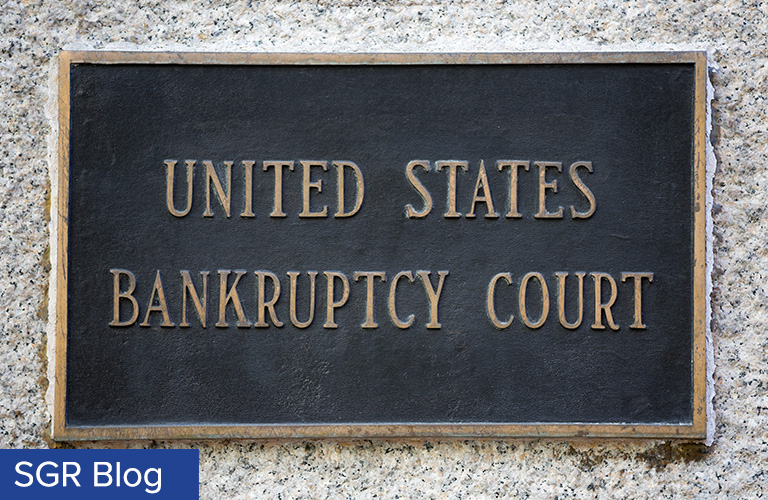
On May 20, 2019, in deciding Mission Product Holdings, Inc. v. Tempnology, LLC, No. 17-1657, the U.S. Supreme Court settled a circuit split regarding an unresolved legal issue in trademark licensing, determining whether a licensee can continue to use a licensed mark once the licensor files for bankruptcy.
Tempnology, LLC (“Tempnology”) manufactured clothing and accessories designed to stay cool during physical activity and marketed these products under the trademark “Coolcore.” In 2012, Tempnology entered into a license agreement with Mission Product Holdings, Inc. (“Mission”), granting Mission an exclusive license to distribute certain Coolcore products in the United States and a non-exclusive license to use the Coolcore trademarks in the United States and around the world. This license was to end on July 2016, but in September 2015, Tempnology filed a petition for Chapter 11 bankruptcy.
Tempnology then asked the Bankruptcy Court to allow it to reject the licensing agreement, which the Bankruptcy Court approved. The Bankruptcy Court also agreed with Tempnology that the rejection of the agreement extinguished the rights conferred upon the trademark licensee. The Bankruptcy Appellate Panel then reversed this decision, relying on a decision by the Court of Appeals for the Seventh Circuit regarding the effects of rejection on trademark licensing agreements. The Seventh Circuit in Sunbeam Products, Inc. v. Chicago American Manufacturing, LLC, 686 F.3d 372 (7th Cir. 2012), determined that it was more appropriate to focus on § 365(g) of the Bankruptcy Code rather than § 365(n). Section 365(g) classifies rejection as a breach, so in bankruptcy, after a rejection of a contract, the non-rejecting party’s rights remain in place and it only “frees the estate from the obligation to perform and has absolutely no effect upon the contract’s continued existence.” Id. at 377.
Then, on appeal, the Court of Appeals for the First Circuit rejected the Panel’s and the Seventh Circuit’s view and reinstated the Bankruptcy Court’s decision, finding that allowing a license to survive would burden the debtor with the obligation of monitoring the use of the trademark to ensure the trademark retains its value. The Supreme Court then granted certiorari to settle the split between the First and Seventh Circuits.
The Bankruptcy Code allows a trustee or debtor to “assume or reject any executory contract,” which is a contract where some performance is still due on both sides. Under Section 365(g) of the Bankruptcy Code, a rejection constitutes a breach of a contract. Outside of bankruptcy, a breach of contract by a licensor does not revoke the continuing rights given to the licensee under a contract. The Supreme Court held, consistent with the Sunbeam decision by the Seventh Circuit, that while the Bankruptcy Code allows a debtor to reject a contract and thus escaping all future contract obligations, it does not grant a debtor relief from all burdens, such as the need to make economic decisions about preserving the estate’s value, including whether to invest resources to maintain a trademark. Therefore, the Supreme Court found that since a rejection is treated as a breach, in bankruptcy, the licensee, as the non-breaching party, should also be able to continue using the trademark as allowed under the license agreement and a rejection does not rescind rights that were previously granted.
The Supreme Court rejected Tempnology’s argument that omission of trademarks from Section 365(n) of the Bankruptcy Code showed that Congress intended that rejection would terminate the use of a trademark by stating “Congress’s repudiation of Lubrizol for patent contracts does not show any intent to ratify that decision’s approach for almost all others . . . Congress did nothing in adding Section 365(n) to alter the natural reading of Section 365(g) – that rejection and breach have the same results.”
However, as noted by Justice Sotomayor in her concurring opinion, “the Court does not decide that every trademark licensee has the unfettered right to continue using licensed marks postrejection.” So there may be exceptions to the ruling by the Supreme Court. Accordingly, Justice Sotomayor believes that exceptions to the Supreme Court holding may exist depending on provisions of the license agreement and/or state laws.
Licensees may now rest assured that their rights to trademarks under licensing agreements will generally stay intact even if the licensor enters bankruptcy proceedings, which should add certainty in most cases to the rights of trademark licensees.
For more information on this topic, contact your Intellectual Property counsel at Smith, Gambrell & Russell, LLP.

